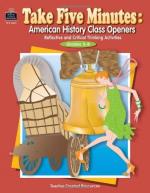|
This section contains 218 words (approx. 1 page at 300 words per page) |

|
"Wife and daughters," Elizabeth Hill's father announced one day in the 1850s, "store away your loom, wheels, warping bars, spool rack, winding blades, all your utensils for weaving cloth up in the loft." Farmer Hill had decided that the family's womenfolk no longer had to spend winters making cloth because "the boys and I can make enough by increasing our herds" to purchase factory-made at the store. The younger women in Elizabeth's neighborhood were overjoyed as their families too abandoned looms and spinning wheels. "They clapped their hands with delight," Elizabeth remembered, though "the old ladies could not give up . . . as yet, so they continued with spinning." These older women had great pride in their skills as spinners and weavers, having inherited the secrets of the process from their mothers along with treasured wheels and looms. One wistfully remembered working...
|
This section contains 218 words (approx. 1 page at 300 words per page) |

|




